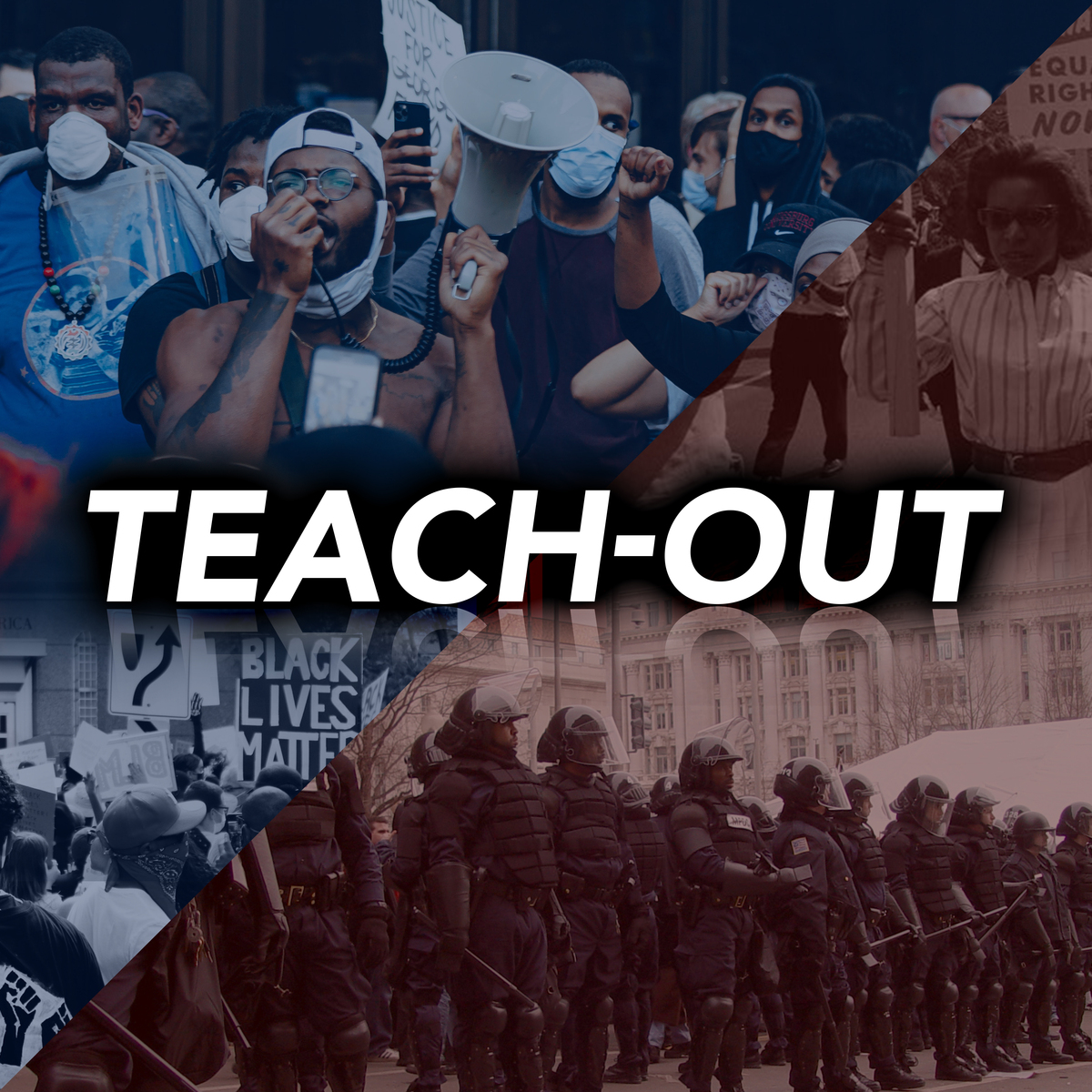The Role of Sport in Social Justice Movements
Dr. Ketra L. Armstrong, a professor of Sport Management and director of the Center for Race & Ethnicity in Sport (C-RAES), explains how sporting events and athletes play a role in addressing social justice issues.
Excerpt From

Transcript
Hello, thanks for tuning in to this teachout on police brutality. My name is Ketra Armstrong. I'm a Professor of Sport Management and the Director of the Center for Race and Ethnicity in Sport here at the University of Michigan. I would like to interject a very brief narrative on sports as we talk about police violence and police brutality. You may be asking, why are we talking about sport in the context of police violence? Well, first of all, I just want to talk about the power of the institution of sport to promote social change. Sport is a powerful institution. It has impacted our society in so many ways, culturally, socially, psychologically, politically. And most of us are connected to sport in some way. We have a favorite sport team, we have a favorite sport athlete. And so we are connected to sport emotionally, psychologically, we feel vested in this enterprise. And in sport also, because of those factors, sport has a very wide catchment area. So it's a great way of communicating with the masses. And it is very visible, sporting events are the most watched events out of all other forms of entertainment. So you put all those things together, it creates a very powerful platform to communicate messages, and that include messages of social justice, racial equality, racial inequality, and that also means that we can discuss issues relative to police violence and police brutality. Nelson Mandela reminded us when he was dealing with the issues of apartheid in South Africa, that sport has the power to change the world, even more so than government. And sport has a way unlike any other entity to help us understand matters of racial justice. So that's why we're going to talk this for a few minutes about sport in the context of police brutality. Now, you may be asking, well, why should athletes be speaking out? Well, it's important to keep in mind that when we talk about police brutality, the communities that are impacted by police violence. These are also the communities that are creating this entity, this sport enterprise that we all love, that we're connected to. And so what I want you to keep in mind is that black athletes who comprise it particularly at the professional level, over 70% of the NFL players, over 80% of the NBA players, over half of the the players in football and basketball in college. Because those are the revenue sports, those are the sports that have created this enterprise. They are also members of the black community. And so, my research has suggested that there are instances where by being an athlete, black athletes sort of get elements of privilege. So in some regards, the athletasizing of their race makes them safe, makes them comfortable. So people connect with them because they're representing a team. They have the team uniform on, but I want you to know that black athletes spend much more of their time in their life uniform of blackness than their team uniform. So when they're decorated in their element of blackness and they're not associated with a team, they're subject to the same types of harassment and violence that the other members of their communities are. And so for those reasons, when they're speaking out about police injustices, they're speaking out for themselves. They're speaking out for their community, their brothers, their uncles, their fathers, their mothers, their sisters, their aunt. So they're speaking on behalf of the injustices that have been cast upon their community. So it makes sense for them to speak out about police brutality. And this is not new, athletes have long used sport as a platform to talk about racial injustices, far back as 1968 during the Olympics in Mexico City. Those two athletes, Tommy Smith and John Carlos, they protested when they won their medals, the golden, the bronze medals from winning the 200 meter race. They stood on a platform with their fists raised high, with the heads bow, they had black gloves on their fists. They had black socks on, they didn't have shoes. That was their moment to display the racism. They're dismayed for the racism that was impacting society. So sport has long been a platform by which athletes have brought attention to matters of racial injustice. In fact, in a documentary, Rachel Robinson, Jackie Robinson's wife commented that she had no doubt that when Jackie Robinson integrated baseball back in 1947, that that became a rallying cry for the civil rights movement in America. So sport has long been use as a platform for social justice, for communicating matters of racial injustice, and to try to promote social change. And so what we're seeing now is no exception that our athletes, our coaches, and even the fans are starting to use that platform to try to address the ills of racial injustices, including racial injustice associated with police brutality and police violence.